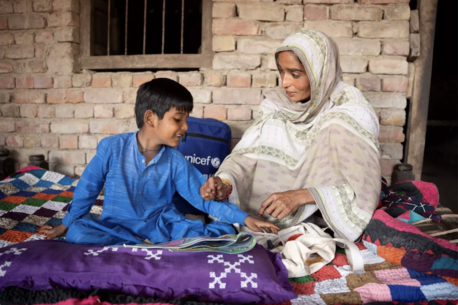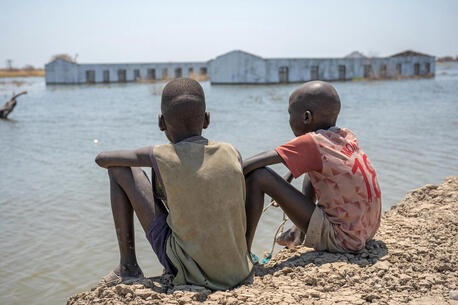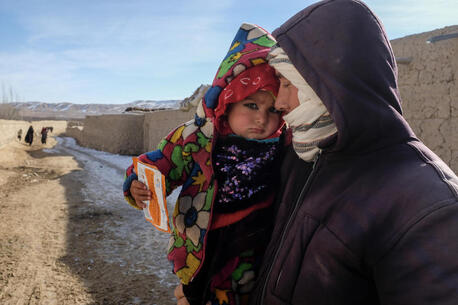
Weathering Winter With Help From UNICEF
Freezing, damp conditions pose a threat to children in humanitarian crises. UNICEF and partners provide critical support.
Cold-weather gear and other critical supplies and assistance are needed now
A deadly combination of displacement, soaring malnutrition rates, conflict and disaster has left more children in need of humanitarian assistance than at any time since World War II.
With winter approaching, along with freezing temperatures and damp conditions, children in many parts of the world risk being left exposed and especially vulnerable.
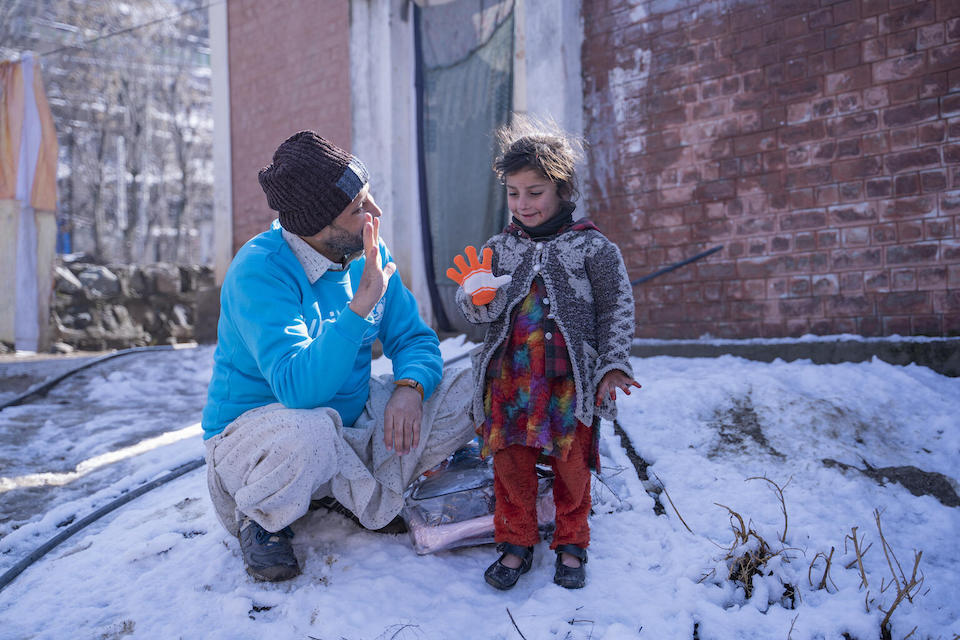
The risk of hypothermia and serious respiratory infections threaten children whose immune systems are often already weakened from undernutrition.
Children living in conflict — children who are likely to be displaced, living in extreme poverty and out of school — are at particularly high risk when temperatures plunge. And families who have managed to remain in their homes in the midst of war are typically drained financially after long periods of unemployment, making purchases of warm clothing, heating fuel or repairs to their homes all but impossible.
UNICEF works with partners to reach children and families in need with lifesaving winter assistance, providing supplies like blankets and jackets, and in some cases cash payments to help cover the cost of fuel and other essentials.
For some, winter isn't coming — it is already here
For children and families impacted by the recent earthquakes in Afghanistan, the ongoing war in Ukraine and other humanitarian emergencies, cold-weather gear and other critical supplies and assistance are needed now.
UNICEF supporters can help. Here's a look at what's happening in countries that are the focus of UNICEF's winter appeal this year.
Afghanistan
Thousands of homes were destroyed by the deadly earthquakes that hit Afghanistan's Herat province earlier this month. In the Zinda Jan district, the epicenter of the Oct. 7 quake, 95 percent of homes were obliterated.
UNICEF needs support to get enough winter supplies to children and families living outside in tents — before temperatures plummet to below freezing. The plan is to distribute up to 1,500 heavy duty tarpaulins, 850 blankets and 5,000 family kits containing warm clothes. Learn more about UNICEF's emergency response in Afghanistan.
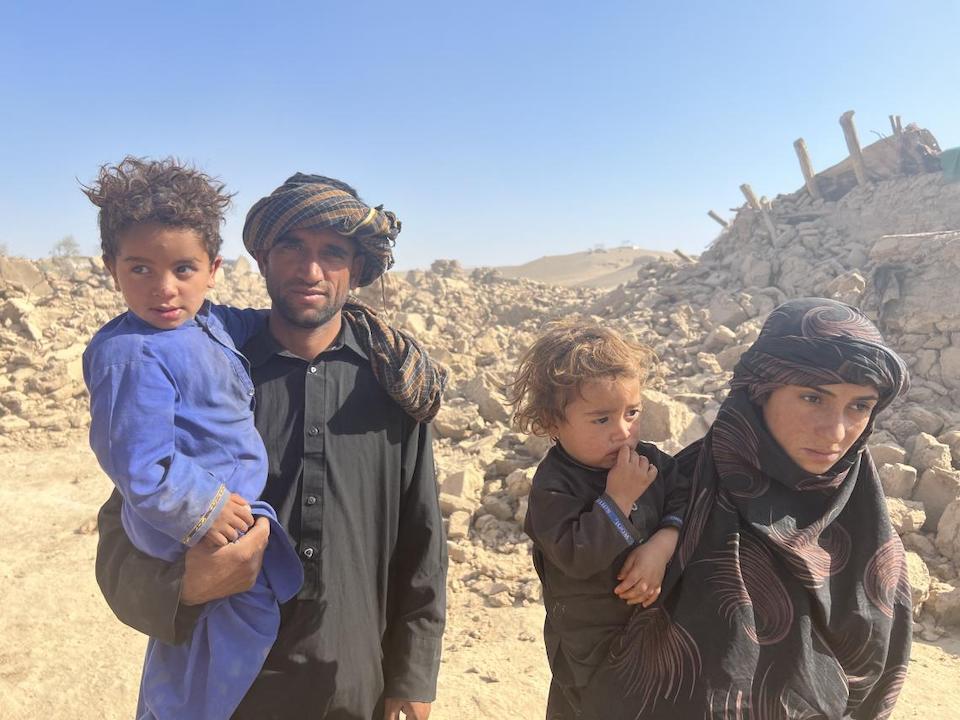
Ukraine
The ongoing war in Ukraine has left millions of children in the country vulnerable to biting winds and frigid temperatures.
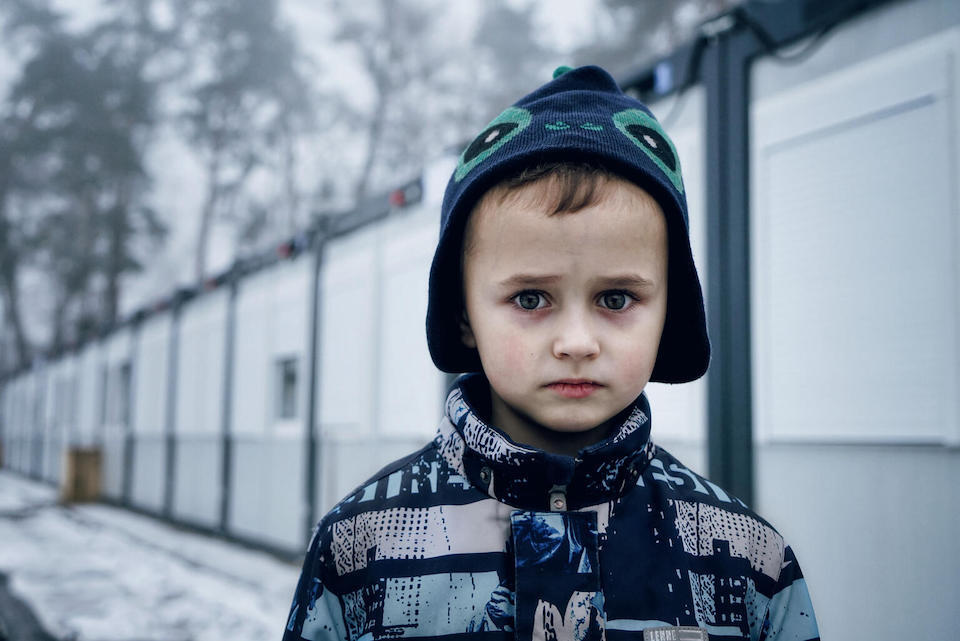
Hundreds of thousands of people have seen their homes, businesses or schools damaged or destroyed. Millions of children remain without sustained access to electricity, heating and water. Classrooms are too cold to receive students.
Last winter, UNICEF provided power generators to support heating systems at schools and medical facilities and reached hundreds of thousands of children and their caregivers with winter clothing, blankets, heaters, and mobile and electrical boilers.
Preparations for this winter are underway, with UNICEF gearing up to reach 160,000 children with winter clothing or winter top-up multipurpose cash assistance, while continuing to work to keep critical services like water utilities and health facilities functioning. Learn more about how UNICEF is helping children and families impacted by the war in Ukraine.
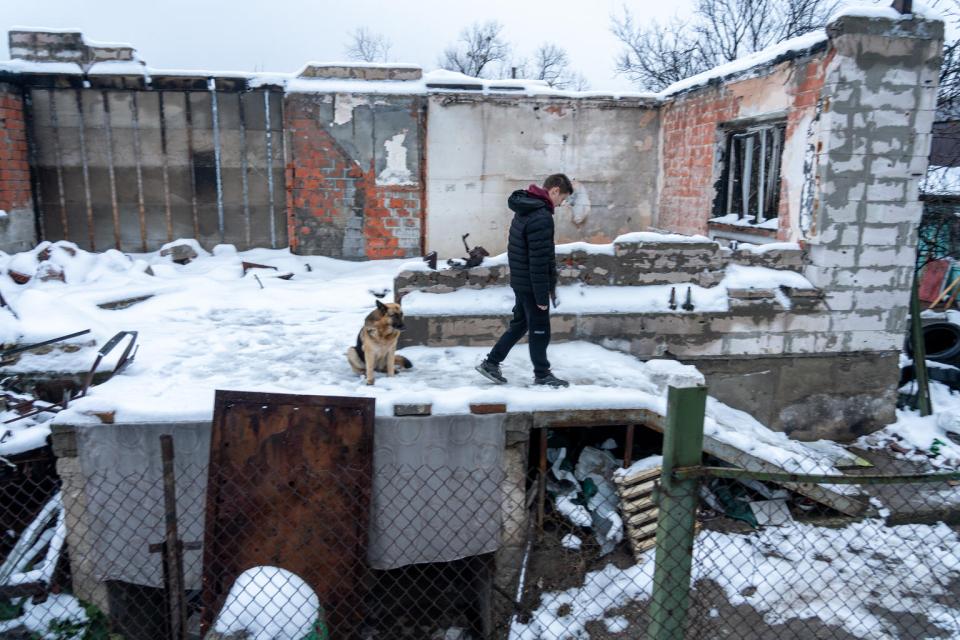
Pakistan
Many children and families in Pakistan still recovering from the unprecedented flooding of summer 2022 need help to weather the coming winter.
Many families have little more than mere cloth to cover makeshift shelters. In mountainous and high-altitude areas, which have also been affected by floods, it has snowed, and temperatures have dropped below freezing. For children already suffering from severe acute malnutrition, or a respiratory or waterborne illness, bitter cold without adequate shelter is especially life-threatening.
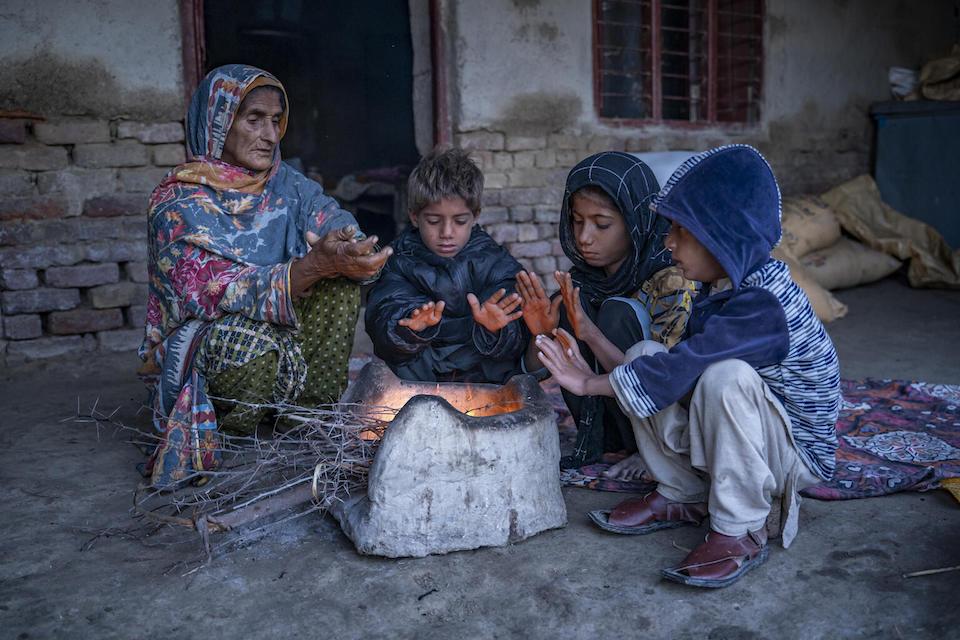
Last winter, with donor support, UNICEF distributed supplies to 350,000 people in five flood-affected regions, focusing on communities where houses remained fully or partially damaged by the floods. Relief packages included warm clothing for infants and children, blankets, quilts, jackets, shawls for women, and woolen caps. More support is needed to fund UNICEF's winter assistance plans for 2023.
Meanwhile, UNICEF continues to support efforts to reconstruct and strengthen critical systems (health, water, sanitation education) with a focus on making them more climate resilient. Learn more about UNICEF's mission in Pakistan.
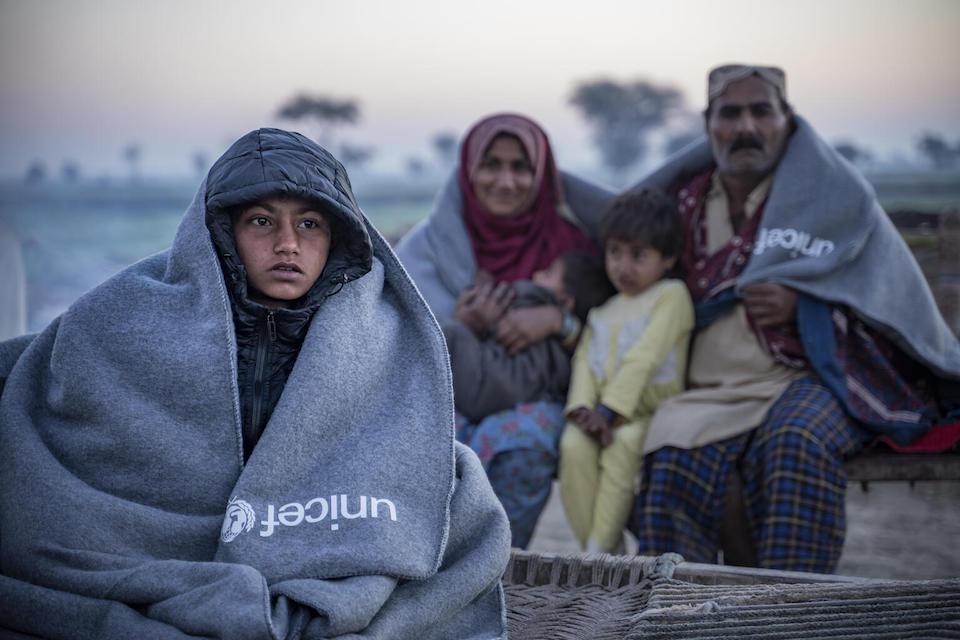
Syria
More than a decade of humanitarian crises and hostilities has left children in Syria facing one of the most complex emergencies in the world. Two-thirds of the population require assistance due to the struggling economy, localized fighting, mass displacement and devastated public infrastructure.
Harsh winters with freezing temperatures and heavy rains only exacerbate the threats to the country’s children.
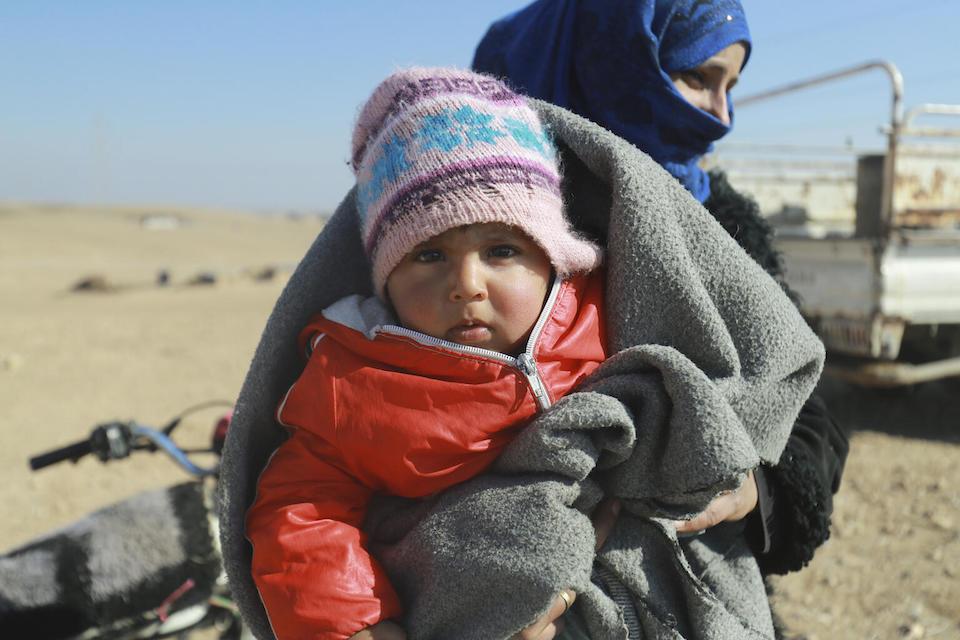
Families living in war-ravaged urban areas have a tough time fending off the cold; many continue to reside in makeshift tents in overcrowded displacement sites, particularly in the northern part of the country.
UNICEF has been reaching out to female-headed families, families with children with disabilities and children living in urban slums without caregivers to provide cash assistance to help cover essentials. UNICEF and partners have also been providing heaters and fuel for heating to schools and learning spaces and repairing and insulating windows — all to help keep children learning. Learn more about how UNICEF is helping children in Syria.
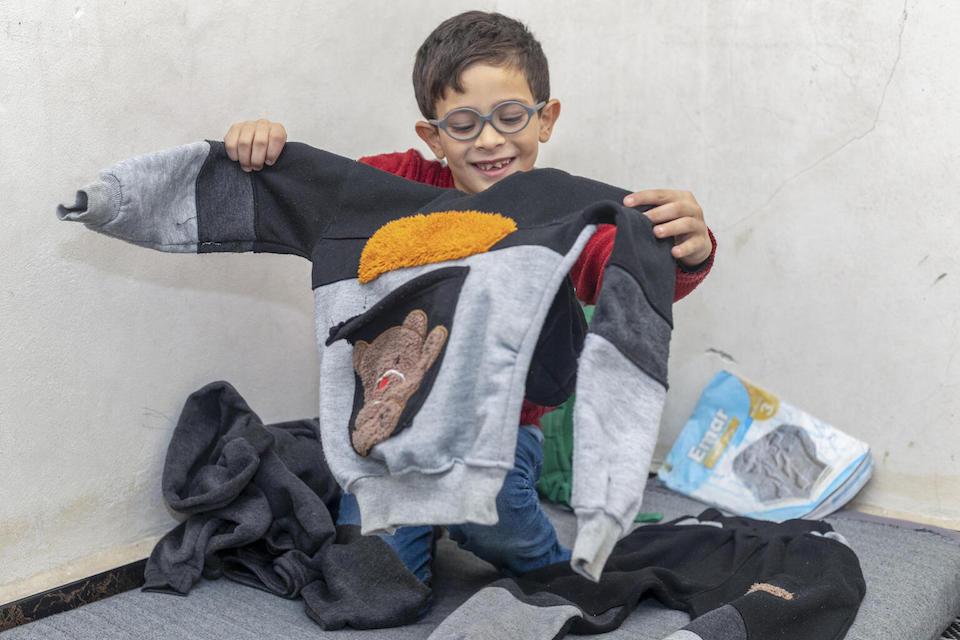
Learn more about what UNICEF does to create a more equitable world for children.
Help UNICEF reach more children in need. Please donate.
